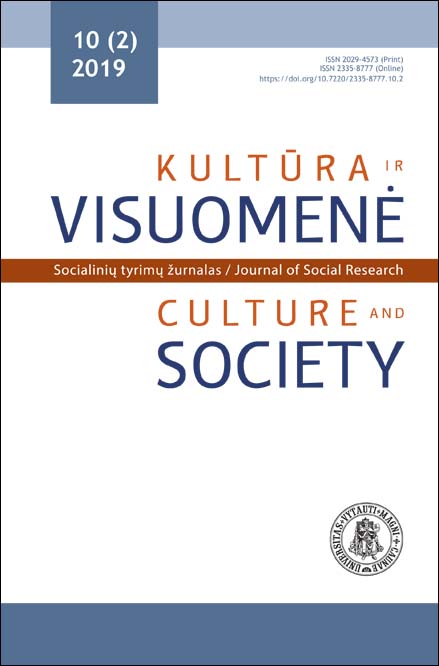Methodological Inertia and Neoliberal Bias in the Scientific Discourse on Internet Gaming Disorder
Methodological Inertia and Neoliberal Bias in the Scientific Discourse on Internet Gaming Disorder
Author(s): Benediktas GelūnasSubject(s): Clinical psychology, Health and medicine and law, Socio-Economic Research
Published by: Vytauto Didžiojo Universitetas
Keywords: Internet gaming disorder (IGD); Discourse analysis; Neoliberalism; Subjectivity; Social bias; Critical psychiatry;Addiction;
Summary/Abstract: The World Health Association has recently made Gaming Disorder a new official behavioral addiction diagnosis, against critique of growing pathologization of everyday behaviors and discontent in gamer communities. The controversial consensus on the psychiatrists’ side raises a question about how the new diagnosis is influenced by scientists’ normative attitudes and habitual institutional methods. The aim of this article is to present the scientific discourse behind the new disorder and interpret its meaning in a broader sociopolitical context, drawing on critical psychiatry, theories of neoliberal subjectivity, and alternative notions of addiction. For this purpose, I conducted a study of 247 article abstracts on the Internet Gaming Disorder proposed in the DSM-5, employing critical thematic discourse analysis (Parker 2011) and forming code trees from the bottom up. I found most abstracts to support the validity of IGD and express confirmatory scientific attitudes. Based on the study, I claim that the main issues of the discourse are (1) strong reliance on confirmatory brain and quantitative research without theoretical grounding, for example, lack of differentiation between cause/effect and alteration/disorder binaries, (2) prescription of neoliberal norms of subjectivity, and (3) lack of attention to the social context of the disorder. This shows that scientists’ attitudes and habits are highly important for legitimizing the disorder, despite its model’s crucial theoretical weaknesses, and that more socially-aware interdisciplinary research is needed to understand the complexity of problematic gaming and come up with better ways of dealing with it than pathologization.
Journal: Kultūra ir visuomenė: socialinių tyrimų žurnalas
- Issue Year: 10/2019
- Issue No: 2
- Page Range: 11-30
- Page Count: 20
- Language: English

